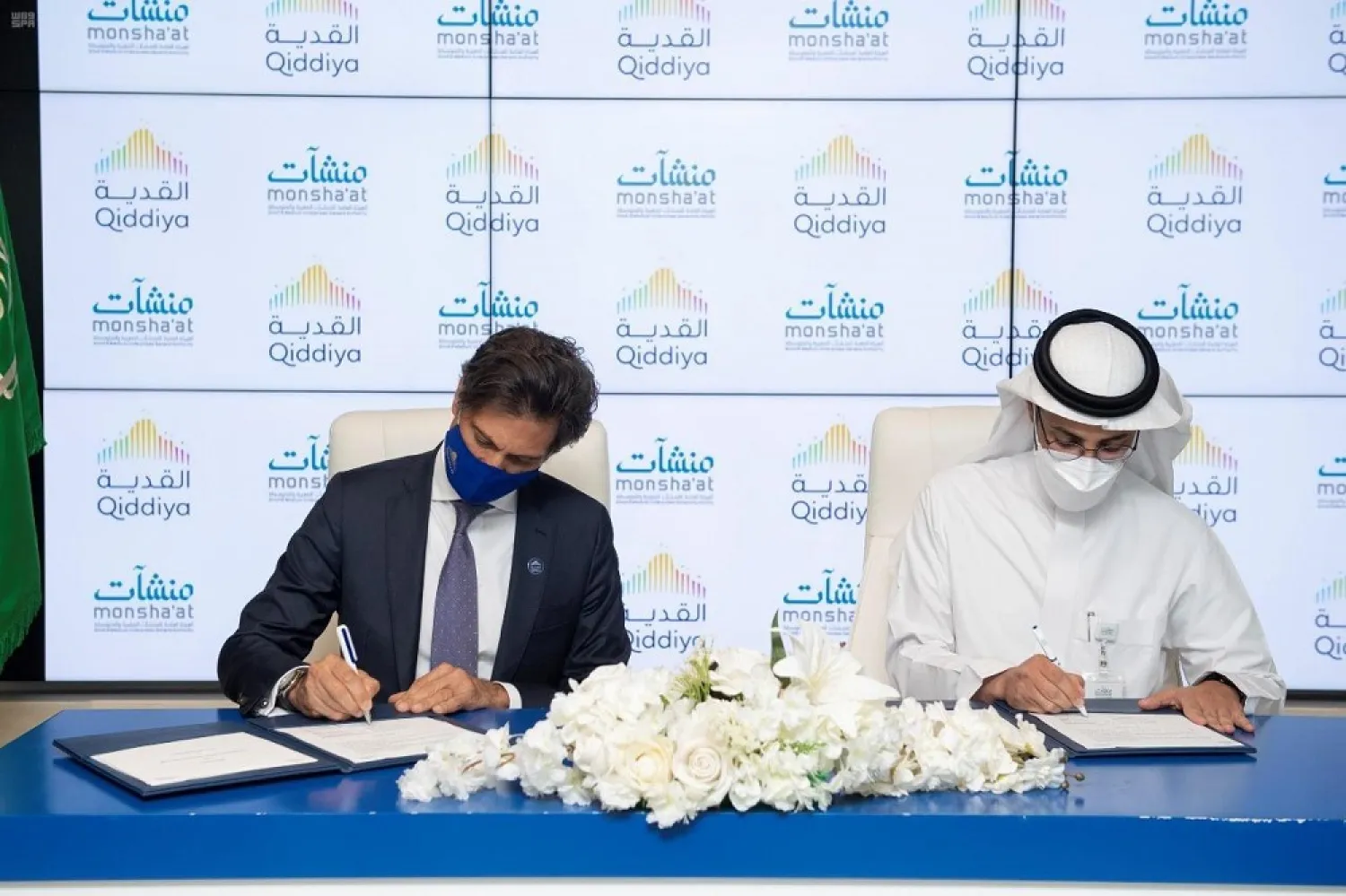Saudi Arabia’s Qiddiya Investment Company (QIC) and the General Authority for Small and Medium Enterprises (Monshaat) signed two memoranda of understanding (MoUs).
The agreements aim to enhance bilateral cooperation, provide QIC with access to the “Jadeer” portal, and develop Qiddiya as a destination that provides an environment open to SMEs.
CEO of QIC Philippe Gas said: “These two MoUs reflect our continuous effort to enhance cooperation and strategic partnerships with local entities involved in national transformation, in line with the ambitions of Saudi Vision 2030.”
Gas added: “These MoUs mean that local SMEs will be able to easily access information about the Qiddiya project and the numerous opportunities available in QIC.”
Governor of Monshaat Eng. Saleh bin Ibrahim Al-Rasheed said: “These MoUs highlight Monshaat’s keenness to enhance cooperation with the public and private sectors and to create an environment that stimulates the growth and prosperity of small and medium-sized enterprises.”
He stressed: “It will help to increase competitiveness and will contribute to the development of local entities by boosting and developing the standard of SMEs in the Kingdom.
“It will also support them to reach the opportunities provided by the public and private sectors, including those offered by QIC.”
Under the first MoU, QIC will provide Monshaat with commercial opportunities across the key sectors of hospitality, tourism and entertainment, in all areas of the business, including contracting, supply, logistics, IT, maintenance, public services and more.
Certain conditions will have to be met by service providers, which will help Monshaat to rehabilitate SMEs and set policies, standards, and strategies to raise the productivity of these enterprises and increase their contribution to the GDP.
This in turn will enhance the contribution of local entities to the major projects being implemented in the Kingdom.
Monshaat will help QIC establish its own innovation center, benefitting from Monshaat’s experience in this field and will also give QIC access to its research facilities and centers.
Additionally, Monshaat will provide Qiddiya with statistical information to be used in developing Qiddiya’s various project sectors.
The second MoU will give Qiddiya access to Monsha'at’s "Jadeer" portal – a database of SMEs operating in the Kingdom categorized by sector - as well as a list of emerging companies that benefit from business incubators.
This access will allow easier communication between QIC and entities in sectors where there are opportunities for collaboration.









